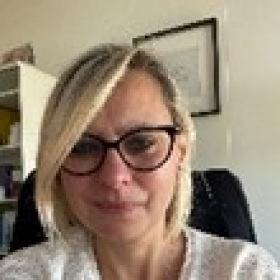

Juliana (Court of Justice of the EU)
“Svoju prácu už viac ako 15 rokov, keď som úspešne absolvovala výberové konanie na miesto právneho lingvistu, vnímam ako poslanie. Jednou z hlavných úloh právnika lingvistu na Súdnom dvore v Luxembursku je zabezpečiť, aby právne dokumenty Súdneho dvora boli presne a v súlade s právnou terminológiou preložené do všetkých úradných jazykov Únie. Právnik lingvista pracuje v multikultúrnom a multijazyčnom prostredí. Samotné Luxembursko poskytuje vysokú kvalitu života, kultúrne a športové vyžitie pre všetky vekové kategórie. Ak ste zanieteným lingvistom so záujmom pre právo a európsku integráciu, táto práca a životný štýl v Luxembursku môžu byť pre vás ideálnou kombináciou.”
***
“After successfully completing the selection process for the position of legal linguist, I have been seeing this job as a mission for more than 15 years. One of the main tasks of a lawyer linguist at the Court of Justice of Luxembourg is to ensure that the legal documents of the Court of Justice are translated accurately and in accordance with legal terminology into all the official languages of the Union. As a lawyer linguist, you have the opportunity to work in a multicultural and multilingual environment. Luxembourg itself provides a high quality of life, cultural and sports activities for all age groups. If you are a passionate linguist with a passion for law and European integration, this job and lifestyle in Luxembourg could be the perfect combination for you.”
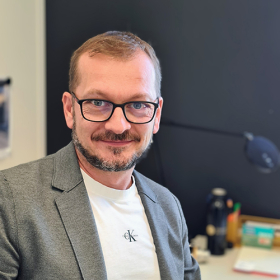
Branislav (Court of Justice of the EU)
“Ahoj, volám sa Branislav a na Súdnom dvore Európskej únie pracujem ako právnik lingvista už viac ako 17 rokov. Vzhľadom na svoje vzdelanie získané na francúzsko-slovenskom bilingválnom gymnáziu a na právnickej fakulte a na bohaté pracovné skúsenosti, ktoré som nadobudol počas piatich rokov na slovenskom vnútroštátnom súde, som sa rozhodol zmeniť prácu a prijať nové výzvy, v rámci ktorých môžem maximálne skĺbiť svoje vedomosti a schopnosti (jazykové aj právne).
Po rozšírení skúseností na stážach vo Francúzsku už bola moja voľba veľmi jednoduchá: Súdny dvor Európskej únie v Luxemburgu: súdna inštitúcia, ktorej jedným z hlavných jazykov komunikácie je francúzština a ktorá sídli v Luxembursku, kde je jedným z úradných jazykov takisto francúzština.
Dvere na Slovenskú prekladateľskú sekciu sa mi pootvorili po absolvovaní stáže na Oddelení výskumu a dokumentácie Súdneho dvora. Práca právnika lingvistu je špecifická tým, že má obrovský potenciál naplniť očakávania každého právnika, ktorý je jazykovo zdatný, má chuť sa ďalej vzdelávať a rád prijíma nové pracovné príležitosti v zahraničí.”
***
“Bonjour, je m'appelle Branislav et je travaille à la Cour de justice de l'Union européenne en tant que juriste-linguiste depuis plus de 17 ans. Compte tenu de ma formation au lycée bilingue français-slovaque et à la faculté de droit, ainsi que de ma vaste expérience acquise au cours de mes cinq années de travail à la cour nationale slovaque, j'ai décidé de chercher un nouvel emploi avec de nouveaux défis, dans lequel je pourrai combiner au maximum mes connaissances et mes compétences (tant linguistiques que juridiques).
Après avoir acquis plus d'expérience au cours de mes stages en France, mon choix était déjà très simple : la Cour de justice de l´Union européenne de Luxembourg : une institution judiciaire dont la langue principale de communication est le français et qui est basée au Luxembourg, où l'une des langues officielles est également le français.
La porte de la section de traduction slovaque s'est ouverte à moi après mon stage au service de recherche et documentation de la Cour de justice. Le travail de juriste-linguiste est spécifique en ce sens qu'il a un grand potentiel pour répondre aux attentes de tout juriste ayant des compétences linguistiques, désireux de poursuivre sa formation et aimant relever les défis du travail à l'étranger.”
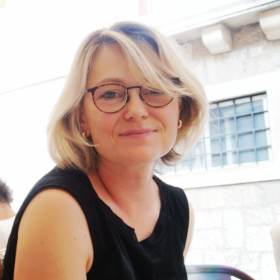
Marcela (Court of Justice of the EU)
“Volám sa Marcela a pochádzam zo Slovenska.
Vyštudovala som Právnickú fakultu UPJŠ v Košiciach.
V čase, keď som končila štúdium práva, Slovensko bolo krátko pred vstupom do EÚ a mne bolo už vtedy jasné, že chcem byť súčasťou európskeho projektu. V Bratislave som sa začala venovať aproximácii práva a keďže ma vždy bavili aj jazyky, postupne som sa špecializovala na prekladanie legislatívy EÚ a rozsudkov Európskeho súdu pre ľudské práva.
V súčasnosti pracujem ako právnička lingvistka na slovenskej sekcii Generálneho riaditeľstva pre multilingvizmus na Súdnom dvore EÚ v Luxemburgu. Pri mojej práci sa odo mňa očakáva skĺbenie právnických vedomostí so znalosťou jazykov a zároveň sústavné vzdelávanie v právnickej aj jazykovej oblasti, a to v multikultúrnom a multijazyčnom prostredí. V závislosti od konkrétneho druhu súdneho konania sa venujem analýze, prekladu a revíziám rôznych typov dokumentov. Moja práca mi umožňuje byť súčasťou procesov, ktoré vychádzajú z cieľa jazykového režimu Súdneho dvora – šíriť judikatúru do všetkých členských štátov a poskytovať prístup k spravodlivosti pre všetkých občanov EÚ. Práve preto ma baví a napĺňa.”
***
“My name is Marcela and I come from Slovakia.
I graduated from the Faculty of Law at the University of P. J. Šafárik in Košice.
When I finished my legal studies, Slovakia was just about to join the EU and it was clear to me at that time that I wanted to be part of the European project. In Bratislava, I started to work on approximation of laws, and as I have always been interested in languages, I gradually specialised in translating EU legislation and judgments of the European Court of Human Rights.
Currently, I work as a lawyer-linguist in the Slovak section of the Directorate General for Multilinguism at the Court of Justice of the European Union in Luxembourg. My work requires me to combine legal knowledge with language skills and requires continuous training in both legal and linguistic fields, in a multicultural and multilingual environment. Depending on the specific type of legal proceedings, I analyse, translate and revise different types of legal documents. In this position, I am part of the processes which are based on the objective of the Court of Justice's linguistic regime - to disseminate case-law to all Member States and to provide access to justice for all EU citizens. That is why I enjoy and find this work fulfilling.”
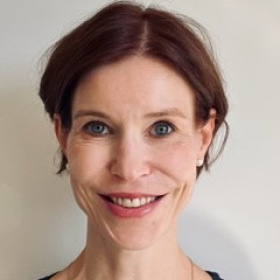
Veronika (Court of Justice of the EU)
“Ako právnička lingvistka na Slovenskej prekladateľskej sekcii Súdneho dvora EÚ pracujem už 16 rokov. Rozhodnutie prijať ponuku Súdneho dvora nebolo jednoduché, keďže som zvažovala rodinné dôvody. No pracovať pre tak významnú inštitúciu bolo pre mňa veľkou výzvou, ktorú som sa rozhodla prijať. Svoje rozhodnutie som neoľutovala.
Náplňou tejto práce sú preklady a revízie dokumentov Súdneho dvora, ako sú rozsudky, uznesenia a návrhy generálnych advokátov. Prekladáme tiež návrhy na začatie prejudiciálneho konania podané slovenskými súdmi, pripravujeme zhrnutia takýchto návrhov a pre potreby ostatných oddelení Súdneho dvora vykonávame rôzne právne analýzy. Podieľame sa aj na projektoch v oblasti terminológie, ako aj verejného obstarávania na uzavretie zmlúv s externými prekladateľmi.
Ja osobne vnímam ako najväčšie pozitívum práce pre Súdny dvor možnosť kontinuálneho odborného vzdelávania. Súdny dvor ponúka širokú škálu školení: od odborných, cez štúdium jazykov, prehlbovanie si znalostí v oblasti informačných technológií, až po školenia zamerané na osobný manažment.
Taktiež veľmi oceňujem dôsledné dodržiavanie rovnosti medzi ženami a mužmi a dôraz Súdneho dvora na duševnú a pracovnú pohodu svojich pracovníkov.
Cením si tiež dostatočnú flexibilitu, ktorú máme pri výkone našej práce, čo nám umožňuje skĺbiť pracovný a rodinný život. Na našom oddelení panujú dobré kolegiálne vzťahy, čo je nepochybne dôležitým prvkom pohody na pracovisku.
Práca právnika lingvistu je vhodná pre každého, kto má právnické vzdelanie a baví ho pracovať s jazykmi a ďalej sa v týchto oblastiach rozvíjať. Ak vás táto pracovná pozícia zaujala, určite sa do výberového konania na právnikov lingvistov pre Súdny dvor prihláste.”
***
“I have been working as a lawyer-linguist in the Slovak translation unit of the Court of Justice of the EU for 16 years. The decision to accept the offer of the Court of Justice was not an easy one because as I was considering family reasons. However, working for such an important institution was a great challenge for me, which I decided to accept. I have not regretted my decision.
This work involves translating and revising documents of the Court of Justice, such as judgments, orders and opinions of the Advocates-General. We also translate references for preliminary rulings from Slovak courts, prepare summaries of such references and perform, for the needs of other departments, various legal analyses. We are also involved in projects in the field of terminology, as well as tendering for freelance translators.
Personally, I see the opportunity for continuous professional training as the greatest positive aspect of working for the Court of Justice. The Court of Justice offers a wide range of training, such as professional training, language learning, deepening knowledge in the field of information technology or training in personal management.
I am also very appreciative of the Court's strict adherence to equality between women and men at work and the Court's emphasis on the mental and occupational well-being of its staff.
I also appreciate the flexibility we have in the performance of our work, which allows us to combine work and family life. There are good collegial relations in our department, which is undoubtedly an important element of well-being in the workplace.
The job of a lawyer-linguist is suitable for anyone who has a legal background and enjoys working with languages.”
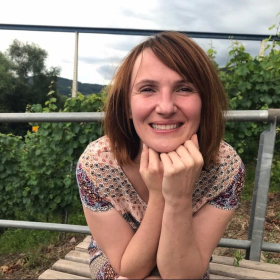
Agnieszka Wendelová, jazyková asistentka na poľskom prekladateľskom oddelení
Pre poľské jazykové oddelenie Generálneho riaditeľstva pre preklad (DGT) v Luxemburgu pracujem 15 rokov.
Študovala som španielsku filológiu a americké štúdie v Poľsku na Jagelonskej univerzite. Než som začala pracovať na DGT, bola som úradníčkou na americkom konzuláte v Krakove. Naďalej som chcela pracovať v medzinárodnom prostredí.
Svoju prácu mám rada z týchto dôvodov:
- cítim sa byť súčasťou európskej spoločnosti,
- nikdy nie je nudná,
- vďaka nej sa profesionálne rozvíjam.
Práca na DGT ma veľmi uspokojuje. Mám pocit, že robím niečo, čo je vo svete skutočne dôležité. V rámci riešenia každodenných problémov a otázok na globálnej úrovni vidím a chápem, čo pre nás všetkých znamená EÚ. Práca jazykovej asistentky mi poskytuje veľa príležitostí, pretože sa vyvíja spolu so svetom. Keď som začala pracovať pred 15 rokmi, išlo o úplne iný druh práce. Všetko prešlo vývojom: zručnosti, softvér atď. Mala som príležitosť nadobudnúť nové počítačové zručnosti, naučiť sa nemčinu a francúzštinu, ako aj zapracovať na svojich sociálnych zručnostiach. Takisto som mala príležitosť pracovať niekoľko mesiacov v Európskom parlamente, čo bola pre mňa jedna z najzaujímavejších skúseností.
Najväčšou výzvou pre mňa je zosúladiť pracovný a súkromný život. Som osamelá matka s dvoma malými deťmi, takže si veľmi vážim, ako mi DGT umožňuje zorganizovať si pracovný čas (napr. čiastočný úväzok) a život tak, aby boli všetci spokojní.
Do Luxemburgu som sa presťahovala v roku 2007. Bola to pre mňa veľká zmena, keďže som odišla z veľkého mesta s takmer 1 miliónom obyvateľov do oveľa menšieho hlavného mesta. Luxemburg ma privítal daždivým počasím, slabou premávkou a svojím medzinárodným charakterom. Skutočne sa mi páčila efektívnosť verejnej dopravy a široká paleta možností, ako sa dostať do práce jednoducho a zvyčajne načas. Život v Luxemburgu otvára vašu myseľ. Na ulici počuť množstvo jazykov. Môžete sa spriateliť s ľuďmi z celej Európy. Skutočne máte pocit, že ste súčasťou sveta.
Jazyková asistentka na poľskom prekladateľskom oddelení Európskej komisie (Generálne riaditeľstvo pre preklad)
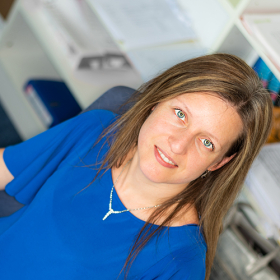
Ieva (Court of Justice of the EU)
“Suderinti teisės žinias ir pomėgį kalboms – visiškai įmanoma! Būtent tai mes, teisininkai lingvistai, darome kasdien, ieškodami sąsajų tarp skirtingų ES valstybių narių teisės sistemų, perteikdami jų skirtumus, gilindamiesi į teisinius terminus ir kalbines raiškos formas skirtingomis šių valstybių kalbomis. Dirbdama teisininke lingviste Teisingumo Teisme, atradau, kad tiek Lietuvos, tiek bet kurios kitos valstybės narės teisė visgi nėra tik nacionaliniu lygmeniu pritaikoma sritis, kad jos žinias galima pritaikyti daug plačiau, taip pat gilinti žinias įvairiose teisės srityse. O kur dar galimybė gyventi ir dirbti daugiakalbėje ir daugiakultūrėje aplinkoje, kai kalbų mokaisi ne vien iš vadovėlio, o susiduri su jomis nuolat, jų įvairovė tampa įprasta kasdienybe. Pabandykite ir įsitikinsite – šis darbas labai įdomus!”
***
“It‘s absolutely possible to combine your legal knowledge and vocation to learn languages! This is exactly what we do every day as lawyer linguists, looking for links and relations between the legal systems of different EU member states, conveying their differences, going into details when we search for appropriate terms and forms of expression, so that our translation does not look like translation, but more as if the text would be elaborated in our own language. Working as lawyer linguist at the Court of Justice, I found out that the national law of Lithuania (and of any other member state) is not only relevant at the national level, that I can apply this knowledge much more widely and learn something new in different law areas as well. In addition, I should mention the opportunity to live and to work in a multilingual and multicultural environment where you learn languages not only from a textbook, but are constantly surrounded by people speaking these languages, this diversity becomes a part of everyday life. Just try and you will see that this work is very interesting!”
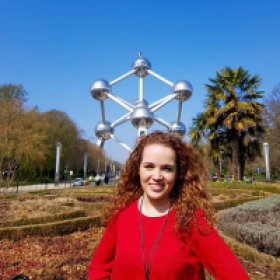
Tessa Pouels González, lawyer-linguist assistant in the Dutch team in the Directorate Quality of Legislation
My name is Tessa, I come from Spain and I work as a lawyer-linguist assistant in the Dutch team.
When I finished my master's degree in legal translation, I thought that my next step would be to work as a freelancer, but I am proud to say that the European institutions offer opportunities to motivated young people eager to be part of the European project.
Working at DQL – where we check the drafting quality of legal acts of the European Council and of the Council – is both challenging and rewarding, as you get to participate and gain an insight into the process of adopting legislation. It is most motivating to be part of a multicultural team with colleagues from different academic, professional and social backgrounds where you are constantly encouraged to continue growing personally and professionally, while benefiting from good working conditions, a wide range of training opportunities and the possibility to change jobs between services and institutions.
If you always wanted an international challenging and interesting career, I highly recommend working for the European institutions. Besides, life in Brussels is enriching and interesting with many activities and events to enjoy.
Lawyer-linguist assistant in the Dutch team in the Directorate Quality of Legislation (DQL) at the Council of the European Union
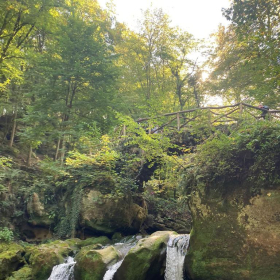
Zuzana (Court of Justice of the EU)
Čím viac som pri cestovaní spoznávala svet, tým viac sa vo mne prehĺbila identita hrdej Európanky. Považujem za privilégium, že k šíreniu hodnôt, na ktorých je postavená Európska únia, môžem po ukončení štúdia práva v Bratislave a vo Viedni prispievať svojou každodennou prácou. Tá mi zároveň umožňuje byť „up-to-date“ priamo pri zdroji v najrozmanitejších oblastiach práva EÚ a zároveň využiť znalosť cudzích jazykov. Zo začiatku som na tejto pozícii ocenila profesionálne vedenie pri nadobúdaní špecifických profesijných skúseností, ako aj rôzne školenia. Postupne som mohla čiastočne pracovať z domu, mať väčšiu samostatnosť a pracovnú flexibilitu. Krásne a moderné priestory budov Súdneho dvora, dobrá organizácia práce, kontinuálna možnosť štúdia jazykov, korektný kolektív a zaujímavé finančné ohodnotenie prispievajú k celkovému výbornému pocitu.
Hoci by sa Luxemburg mohol zo začiatku javiť ako málo pulzujúce miesto, neustále sa vyvíja, čomu prispieva jeho centrálna poloha v blízkosti hraníc s Nemeckom, Francúzskom a Belgickom. Pre mňa osobne je najdôležitejšia skutočnosť, že sa v meste cítim bezpečne, a taktiež oceňujem fungujúce štátne inštitúcie a pluralitnú, tolerantnú spoločnosť. Luxemburg ponúka množstvo kultúrnych príležitostí, ako aj možnosť dostať sa verejnou dopravou zdarma na výlety do prírody v rámci krajiny. Možnosť žiť v meste, ktoré je svetovým dedičstvom UNESCO a je tak ľahko dostupné, zaiste vykompenzuje aj tých pár kvapiek dažďa navyše.
***
The more I explored the world while travelling, the more my identity as a proud European deepened. I consider it a privilege to be able to contribute to spreading the values on which the European Union is built through my daily work after completing my law studies in Bratislava and Vienna. It also allows me to be "up-to-date" at the source in the most diverse areas of EU law, while at the same time making use of my knowledge of foreign languages. In the beginning, I appreciated the professional guidance in gaining specific professional experience as well as the various training opportunities. Gradually, I was able to work partly from home and have more autonomy and work flexibility. The beautiful and modern premises of the Court of Justice buildings, the good organisation of work, the continuous opportunity to learn languages, the correct team and the interesting financial remuneration contribute to an overall excellent feeling.
Although Luxembourg might initially appear to be a place with little vibrancy, it is constantly evolving, helped by its central location close to the borders with Germany, France and Belgium. Most important for me personally is the fact that I feel safe in the city, and I also appreciate the functioning state institutions and the pluralistic, tolerant society. Luxembourg offers many cultural opportunities, as well as the possibility to get free public transport to go on nature trips within the country. The opportunity to live in a city that is a UNESCO World Heritage Site and so easily accessible certainly makes up for the extra few drops of rain.
***
Photo: Luxembourg countryside
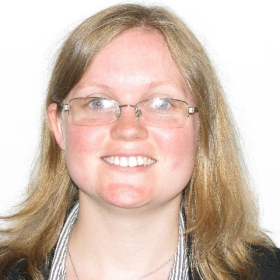
Rose (Court of Justice of the EU)
“I have been working for the Court since 2011, starting as a stagiaire (intern) in the English Translation Unit – now, I advise the Unit on Quality Management issues, in addition to translating from French, Italian, Polish and Romanian (the last two of which I had the opportunity to learn through the Court’s language classes) and correcting freelance and in-house colleagues’ translations from these languages.
My background is primarily in modern languages – my degree was in French and Italian – so it is a real joy to work in an institution and a country where I get to use them every day! Working as a lawyer linguist has also helped me to expand and consolidate my knowledge of EU law (I obtained the Graduate Diploma in Law and completed the Legal Practice Course before coming to Luxembourg) and to gain a deeper insight into the legal systems of the individual Member States.”
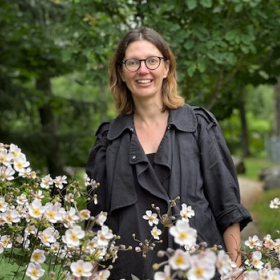
Sigita (Court of Justice of the EU)
Teisingumo Teisme pradėjau dirbti beveik tuo pat metu, kai Lietuva įstojo į Europos Sąjungą, neseniai baigusi teisės studijas Lietuvoje ir Prancūzijoje. Tuo metu buvo labai mažai lietuvių teisininkų, kurie mokėtų prancūzų kalbą taip gerai, kad sugebėtų išversti teisinį tekstą. Ir ne bet kokį teisinį tekstą, o tokį, kuriame Europos Sąjungos teisė persipynusi su valstybių narių teisės sistemomis ir kyla sudėtingų teisės taikymo problemų labai įvairiose srityse, net tokiose, kurios Lietuvoje tuo metu buvo tik pradedamos plėtoti. Taigi, siekiant kuo tiksliau gimtąja kalba perteikti Teisingumo Teismo teisinę mintį, teko ir tebetenka nemažai paplušėti: pasirausti bylos dokumentuose, pasikonsultuoti su kolegomis, kalbininkais, teisėjų kabinetų nariais ir kitomis tarnybomis ar net apsilankyti didžiausioje Europos Sąjungos teisinių leidinių bibliotekoje.
Dirbdama dvidešimt metų tarptautinėje Liuksemburgo aplinkoje su kompetentingais kolegomis, ES teisės ir lyginamosios teisės specialistais, labai daug išmokau. Šiuo metu teisinius dokumentus verčiu ne tik iš prancūzų, bet ir anglų bei ispanų kalbų, mokausi vokiečių. Man labai patinka, kad mano darbe profesinis mokymasis (įskaitant užsienio kalbas) labai skatinamas ir sudarytos puikios sąlygos kompetenciją tobulinti tiek institucijos viduje, tiek seminaruose ar mokymuose visoje Europoje. Dėl technologijų raidos teisininko lingvisto profesija per šį laikotarpį labai pakito, ir man kartu su kolegomis teko įgyti daug visiškai naujų įgūdžių. Šaunu, kad mūsų institucijoje tam sudarytos puikios sąlygos, taip pat užtikrinamos geros socialinės garantijos, puikiai įrengtos darbo vietos, o lankstaus darbo grafiko galimybė labai padeda suderinti šeimos ir profesinį gyvenimą. Institucijoje rūpinamasi ir malonia darbo aplinka: organizuojami kultūriniai, sportiniai, socialiniai renginiai, asmeninio tobulėjimo mokymai, darbo dieną smagu aktyviai pradėti ar užbaigti dideliame sporto centre.
Nekantrauju Jus, savo naują kolegą, pasveikinti Europos Sąjungos Teisingumo Teisme!
Nuoširdūs linkėjimai iš gražiojo Liuksemburgo,
***
I joined the Court of Justice almost at the same time as Lithuania joined the European Union, having recently graduated in law in Lithuania and France. At that time, there were very few Lithuanian lawyers who knew French well enough to translate a legal text. And not just any legal text, but one in which European Union law is intertwined with the legal systems of the Member States, and which raises complex problems of legal application in a wide variety of areas, even in areas that were just beginning to be developed in Lithuania at the time. Thus, in order to convey the Court of Justice's legal reasoning as accurately as possible in my native language, it has been, and continues to be, necessary to do a great deal of work: to review case documents, to consult colleagues, linguists, members of the judges' chambers and other services, and even to visit the largest library of European Union law publications.
Working for twenty years in the international environment of Luxembourg with professional colleagues, specialists in EU law and comparative law, I have learnt a lot. I am currently translating legal documents not only from French, but also from English and Spanish, and I am studying German. I like the fact that professional learning (including foreign languages) is very much encouraged in my job and that there are excellent opportunities to develop my competences, both within the institution and in seminars or training courses throughout Europe. Technological developments have changed the legal linguistics profession considerably during this period, and I have had to acquire many completely new skills, as have my colleagues. It is great that our institution offers excellent conditions for this professional development, as well as good social security, well-equipped workplaces and the possibility of a flexible work schedule, which is a great help in reconciling family and professional life. The institution also provides a pleasant working environment, with cultural, sporting and social events, personal development training, and a great place to start or end the working day with a session in the large sports centre.
I look forward to welcoming you, my new colleague, to the Court of Justice of the European Union!
Sincere greetings from the beautiful city of Luxembourg,
